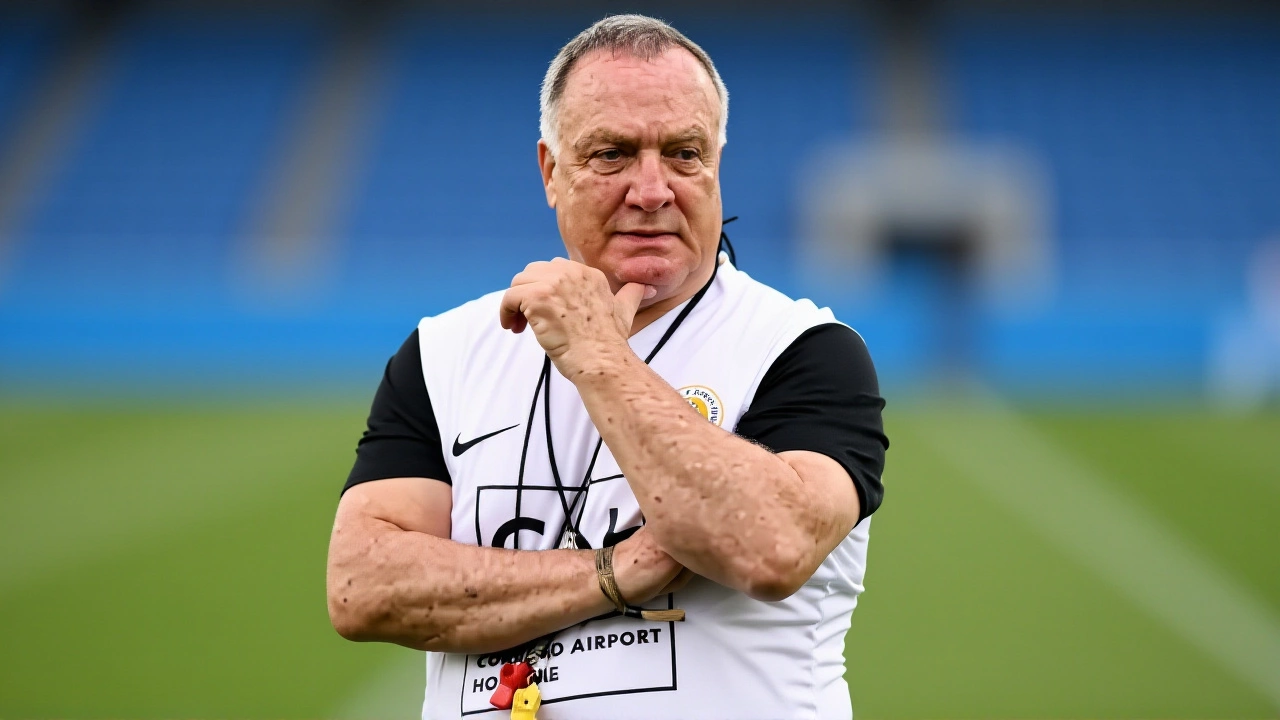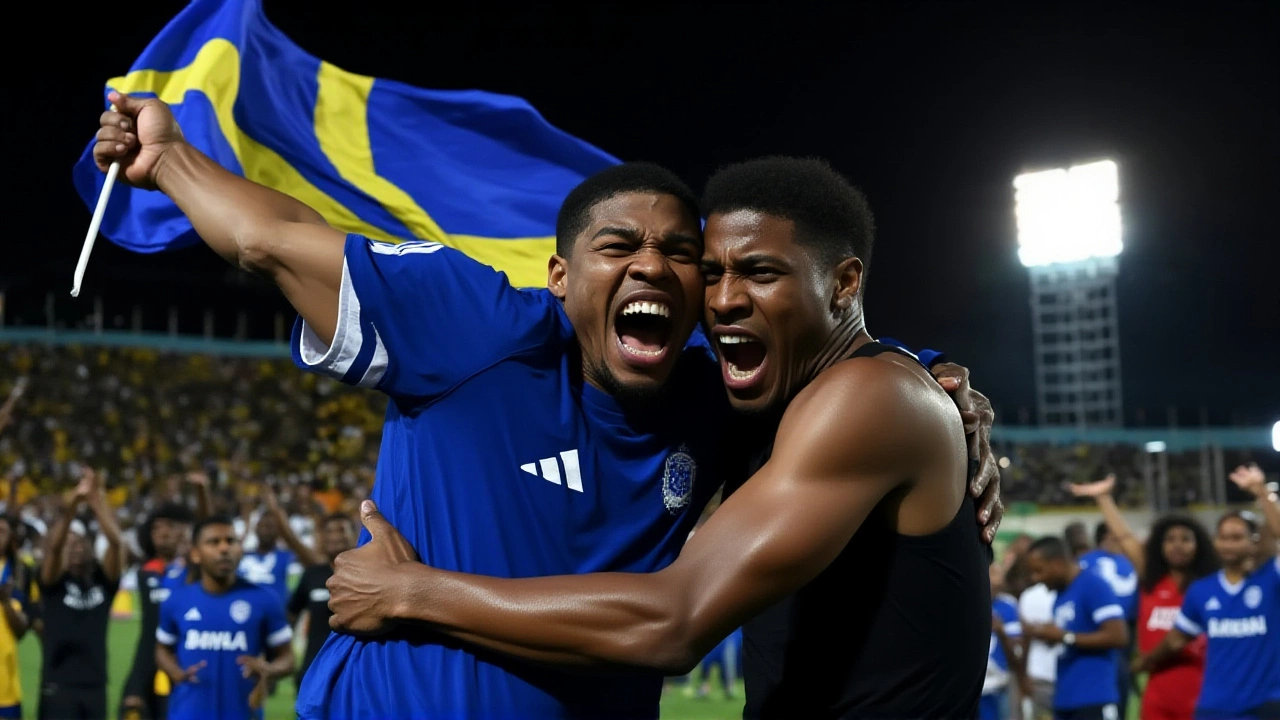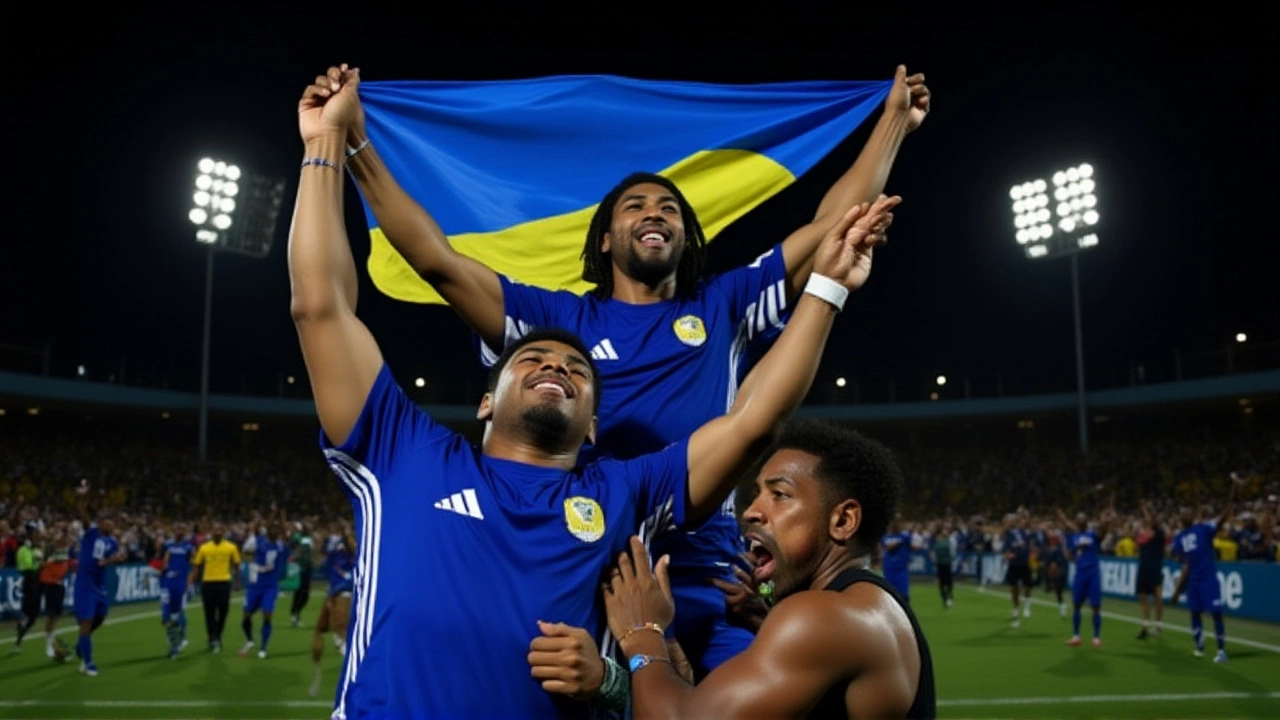On November 19, 2025, at 00:01:07 UTC, the Curacao Football Federation celebrated a moment no one saw coming — their national team, representing a Caribbean island with fewer than 160,000 people, had just qualified for the 2026 FIFA World CupMexico, United States, and Canada. It wasn’t just a win. It was a seismic shift in global football. Curacao, a tiny nation tucked just 65 kilometers north of Venezuela, became the smallest country by population ever to reach the World Cup finals — surpassing Iceland’s 2018 record. The announcement came after a tense, nail-biting match against Jamaica in the CONCACAF final qualifying round. No one outside Willemstad expected this. But they did it.
A Nation That Didn’t Even Exist a Decade Ago
Curacao didn’t even compete as an independent FIFA member until 2011. Before that, it was part of the Netherlands Antilles, a dissolved federation that had never qualified for a World Cup. When the Netherlands Antilles broke apart in 2010, Curacao inherited its football legacy — and its underdog status. For 14 years, they fought in qualifiers, often losing by margins that made headlines for the wrong reasons. In 2019, they lost 6-0 to the United States. In 2021, they were held to a 1-1 draw by Saint Kitts and Nevis. But something changed in 2024. A new coach, Wesley Sneijder (yes, *that* Sneijder, the former Netherlands midfield maestro), took over as technical advisor. He didn’t bring flashy tactics. He brought belief. He told players: "You don’t need to be big to be mighty. You just need to be united."The Night Everything Changed
The decisive match against Jamaica wasn’t televised in most of the world. But in Willemstad, streets emptied as fans packed bars, balconies, and even parking lots. The game ended 2-1. A 38th-minute goal by 21-year-old striker Yanique Haye — who plays for a Dutch amateur side — sent the island into shock. The second goal came from a penalty converted by captain Renato Veiga, a 26-year-old midfielder who splits his time between Curacao and a Belgian third-tier club. Jamaica, ranked 67th in the world and boasting Premier League talent, had been heavy favorites. But Curacao’s defense held firm. No one scored after the 62nd minute.At 00:01:07 UTC, the final whistle blew. Within minutes, an unidentified team representative — whose name, age, and official title remain unconfirmed — gave an emotional, unscripted speech captured by Agence France-Presse in a 67-second video. "I’m so proud of you guys and thank you," he said at the start. Then, at 17 seconds: "We’re super proud. You guys did great. I didn’t expect this because I thought Jamaica was a strong team, but we did it." At 27 seconds: "Finally, we did it." And then, the line that will echo through football history: "We will show everyone that we are small, but we are big at heart. We’re going to show them that we are big at heart."

Why This Matters Beyond the Pitch
The 2026 World Cup is the first to feature 48 teams — a FIFA expansion approved back in 2017 that was meant to give smaller nations a real shot. Curacao’s qualification proves it’s working. Their population of 156,867 (as of January 2023) is less than half of Iceland’s 2018 figure. They’re smaller than Luxembourg, Liechtenstein, San Marino, and even the Faroe Islands — all of which have tried and failed. This isn’t just a football story. It’s a symbol. For every kid in Willemstad who plays barefoot on cracked asphalt, for every coach who’s been told "your country’s too small," Curacao just said: "Watch us."What Comes Next?
The official draw for the 2026 World Cup group stage takes place on December 4, 2025, in Zurich. Curacao will be placed in Pot 4 — the lowest seeding tier — meaning they’ll likely face giants like Brazil, Spain, or the United States. But don’t count them out. In 2021, Qatar, the eventual 2022 hosts, were also considered minnows. They reached the semifinals. Curacao’s players have already said they’re not here to just participate. They’re here to prove something.
The Ripple Effect
In the hours after qualification, the Curacao Football Federation reported a 400% spike in youth registrations. Schools in Piscadera and Sint Michiel are now adding mandatory football clinics. The government has pledged $2.3 million toward upgrading the Estadio Dr. Antoine Maduro in Willemstad, which currently holds 5,000 fans and has no floodlights. And in Kingston, Jamaica’s head coach, Stanley Matthews, admitted on Twitter: "We underestimated them. That’s on us. They played with more heart than we did."Meanwhile, FIFA has quietly begun drafting new guidelines to ensure small nations get better access to training facilities and youth development funding. Curacao didn’t just qualify for the World Cup. They changed the game.
Frequently Asked Questions
How did Curacao manage to qualify despite having such a small population?
Curacao’s success came from a mix of focused youth development, diaspora talent recruitment, and tactical discipline under technical advisor Wesley Sneijder. Many players are based in the Netherlands, Belgium, and the U.S., where they gained exposure to high-level coaching. The federation also invested in analytics and scouting, identifying players with Curacao heritage abroad — a strategy that yielded key contributors like Yanique Haye and Renato Veiga.
Who are the other first-time qualifiers for the 2026 World Cup?
Alongside Curacao, Cape Verde, Jordan, and Uzbekistan are making their World Cup debuts in 2026. Cape Verde, a West African island nation, qualified through a dramatic playoff win over Sudan. Jordan edged out Syria in a tense Asian playoff, while Uzbekistan clinched their spot with a 2-1 win over South Korea. All four nations represent the expanding inclusivity of the 48-team format.
What’s the significance of the 48-team World Cup format?
The 48-team format, approved by FIFA in 2017, was designed to give underdog nations a realistic path to the tournament. Before 2026, only 32 teams qualified — a number that favored traditional powers. Now, with more slots, countries like Curacao, who historically struggled in early qualifying rounds, have a real chance. It’s not just about fairness — it’s about global relevance. Football is no longer just Europe and South America’s game.
Will Curacao’s players be paid for the World Cup?
Most of Curacao’s squad are semi-professional or play in lower European leagues, earning modest salaries. FIFA has committed $1.2 million in prize money to each team that reaches the group stage, and the Curacao Football Federation plans to distribute 60% of that directly to players and staff. The rest will fund youth academies. This is the first time in their history that many of these players will earn more from football than from their day jobs.
What’s the biggest challenge Curacao will face at the World Cup?
Travel, logistics, and exposure. With no major airport or international training base, the team will need to relocate to the U.S. or Mexico weeks before their first match. They’ll face opponents with full-time staff, private jets, and sports science teams. But their advantage? No pressure. No expectations. Just heart. As their captain said: "We’re not here to be seen. We’re here to be remembered."

 Sports News
Sports News